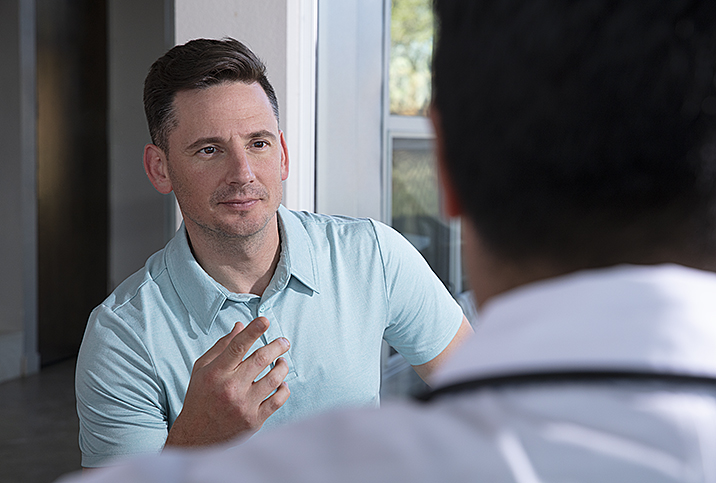How to Have Safe Sex with HPV

The human papillomavirus (HPV) impacts tens of millions of Americans every year. In fact, approximately 80 percent of people who are sexually active will become infected with some form of HPV in their lifetime.
Most forms of HPV will clear up on their own, but for some HPV sufferers, dealing with the disease may be a lifelong issue. This leaves many of those diagnosed with HPV wondering: "Can I have sex with HPV?"
Can you still be sexually active with HPV?
If you've recently been diagnosed with HPV, here's what you need to know about sex with HPV and keeping your partner safe.
1. Tell your sex partner(s) you have HPV
If you receive an HPV diagnosis, it's important to share this information with anyone you recently had sex with—protected or unprotected. Although most strains clear up on their own, if you have one of the strains of HPV that causes genital warts, your partners could develop warts on their genitals, anus and, in some cases, throat.
Be sure to share this information so they can decide if they're comfortable continuing to have sex with you while your HPV infection is present. If you have a male partner, it's important to understand that unless they develop genital warts, it's almost impossible for men to be tested for HPV.
2. There's no 100 percent effective way to stop the transmission of HPV during sex
Wondering how to have safe sex with HPV? The answer isn't so straightforward.
If you and your partner decide to have sex while infected with HPV, it's important to know that it can be nearly impossible to fully protect your partner. While condoms and dental dams can help reduce your chances of spreading HPV, the virus is extremely contagious and spreads with skin-on-skin contact. It could be present on areas around your genitals as well, making it difficult to fully protect against spreading HPV.
3. If you're sexually active, your partner likely already has your strain of HPV
HPV is very contagious and easily spread, so if you're in a monogamous relationship, it's a safe bet that your partner already has your strain of HPV—and vice versa. In this case, there's typically no harm in resuming sex as usual. If you're having unprotected sex, though, it's important to stay up to date on your testing for sexually transmitted infections (STIs), just in case. It is equally important to have regular Pap smears.
4. Get vaccinated for HPV if you haven't already
HPV vaccinations do not protect against all strains of HPV and won't be effective if you already have certain HPV strains in your body. That's why getting vaccinated before becoming sexually active is so important. However, even if you've been having sex for years and you've never been vaccinated, it's still a good idea to try to protect your body from any other strains you haven't already encountered. The HPV vaccine protects you from the most aggressive strains of HPV that cause both cervical cancer and genital warts. It is still recommended for adults. In fact, the current recommendation is to get vaccinated up to age 45.
If you're in a relationship and your partner has not received the HPV vaccine, ask them to get vaccinated, too, so both of you have additional protection.
You can have a normal sex life with HPV
Finding out you have HPV can be shocking, but in most cases, this virus will go away on its own. It's important to tell your partner(s) right away if you become aware you have an active HPV infection, so you can stop the spread and let them decide if they're willing to engage in sex during this timeframe.


















